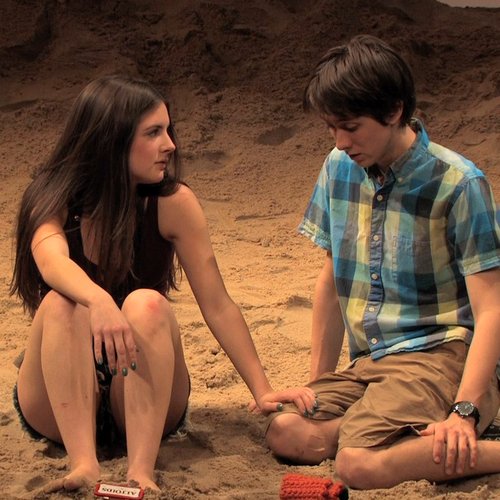Playwright's Perspective: Indian Summer

There are certain corners of America that, in spite of increasing homogeneity, retain their regional customs and culture. New Mexico, where I currently teach, is one of these places. Rhode Island, where I went to school, is one too. Nestled between Boston and Manhattan, looking from above as if it were about to be forcibly ejected from the continent and pushed out to sea, Rhode Island maintains an identity defiantly independent of the surrounding states. There are words, concepts, certain kinds of food, and local lore that exist only in Rhode Island. There are secrets only Rhode Islanders know. It is, as locals say, “The smallest state in the union — at high tide.”
I started writing Indian Summer on a writing retreat in Red Bank, New Jersey — which, in retrospect, seems like an odd place to retreat to. Red Bank has the quality of a quaint seaside vacation spot circa 1985. There are nearby beaches, pizza places with video games, a one-screen movie theater. It resembles the town in Jaws before the shark shows up. It reminded me of the budget vacation destinations of my childhood — the drive two hours north to Lake Winnipesaukee with my father in late July. My housing for the retreat faced out onto a shallow bay. It was a hot, humid August. I wanted to write a play about love and the ocean and the summertime.
...and maybe underneath that you might ask yourself, “Could I fall in love with this person?” and “Am I falling in love with this person?”
The characters came along the way someone walks towards you down the beach — you see their shape, the color of their clothing, the rhythm of their gait abstracted in the distance — and you start to get curious about that person, you wonder what they're like, where they come from, the way you might see people when you’re staying some place away from home, as a kid, or an adult, the way you see strangers who you might be sharing space with for a brief period, for a few days or a week, you might see them again, every day, until you nod or even say hello, and perhaps talk about something innocuous while waiting in a line somewhere, and maybe underneath that you might ask yourself, “Could I fall in love with this person?” and “Am I falling in love with this person?” You might hope you run into them while following the routines you’ve developed, routines that aren’t your routines at home. You have temporarily become a different person. A thousand possibilities are available to you that weren’t there before. And probably none of those possibilities will come to pass, perhaps they’re just imaginary possibilities, but regardless, the world is suddenly huge and full of air, and you’re aware, too, that this feeling is going to pass, very soon, that on Friday you leave, and once again your familiar habits will reassert themselves, and you’ll be yourself, just yourself, again.
There are certain circumstances — love, and the end of love; the deep unfairness of time passing; death and loss; why some people are born into luck, health, and money, and others are not — that resist logical rationalization. Theater provides a place to bear witness to these things. It allows for a gentle, communal acknowledgment of our own powerlessness, as animals caught between social structures, the natural world, and our own mortality.
Everyone in the play is looking for a home. Most of them are home already. But their home, as they imagine it, is somewhere else. They're waiting for their lives to begin, even as their lives are going by.
The play was continued in various coffee shops in Albuquerque, and completed, appropriately enough, in a workshop in Providence. It remains a love letter to Rhode Island, and to other similarly insoluble places and insoluble people, whose paths cross for a short time, and who make homes for each other, for a short time.
Gregory S. Moss
February 2016


